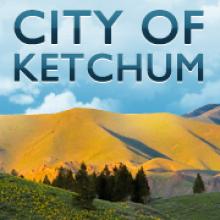Image


While it is tempting to marginalize the need for such services as just a way for Johnny or Sally to download games or movies faster, increasingly the lack of fiber optic capacity is also limiting health care and advanced education options for residents, as well as impacting the growth of telecommuting and home-based businesses for which Ketchum has noticeably been successful in attracting in the past. Now owners of home-based businesses are increasingly saying they can not operate effectively without fiber to the home, and telecommuters contend their employers will be less likely to let them work from home without fast, reliable fiber broadband.This is all true and we wish we saw a hundred editorial boards recognizing it every week. The question is what the community can do about it given the challenge and potential expense. The answer from the Ketchum Keystone is smart:
Overcoming these obstacles will be very heavy lifting for any city government, but there are also remarkable opportunities and common sense strategies available including the use of the existing and soon to be retired water pipe grid, simple changes in building codes to require fiber-optic implementation, and government loan and incentive programs, all of which make the prospects for a sooner rather than later solution.Every community has a somewhat unique mix of challenges and assets. Communities with the asset of smart leadership will seize upon opportunities like maximizing joint projects between the water system, public works, and such. Communities without smart leadership may want to solve that problem first. Ketchum has identified the problem, and that is a good first step. Until a community recognizes that the big cable and telephone corporations will not solve this problem alone and that communities have an essential role in the process, little progress is likely.
City Cast Las Vegas recently aired back-to-back podcast episodes about Internet access in the region, "Why Does Our Internet Suck?" followed by "Who Can Fix Our Internet?" As an organization that both produces stories like that as well as stars on them, as our own Sean Gonsalves did in the first
The city of Mountain Home, Idaho (pop. 14,000) is embracing open access city-run fiber as it pushes to expand affordable broadband to all city residents. Its stated goals: to boost broadband speeds and availability, while lowering prices 25 to 35 percent for all city residents.
